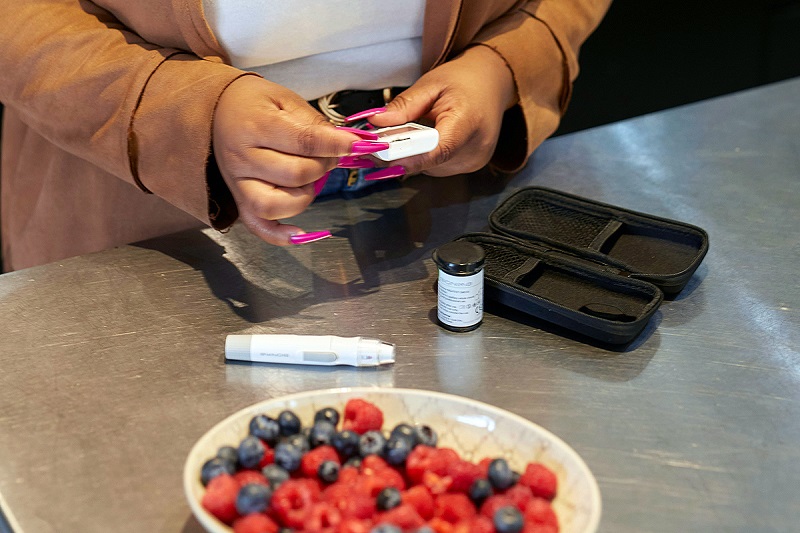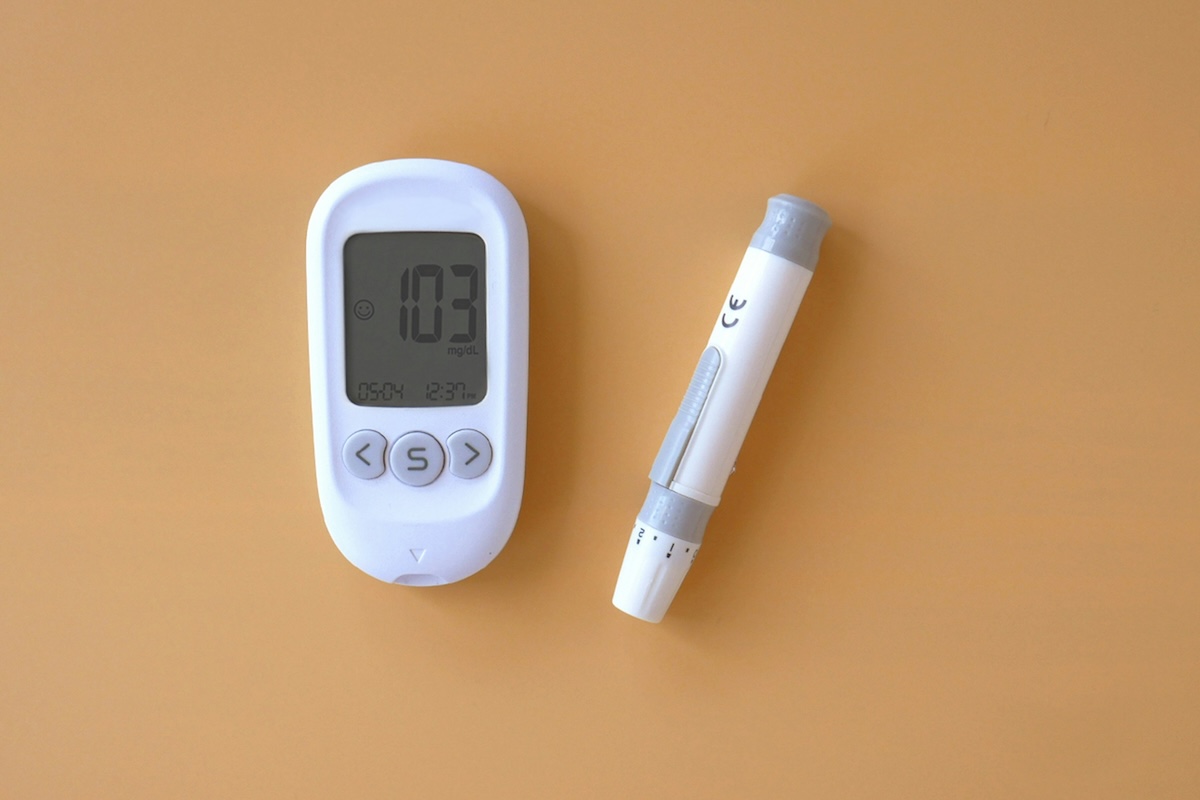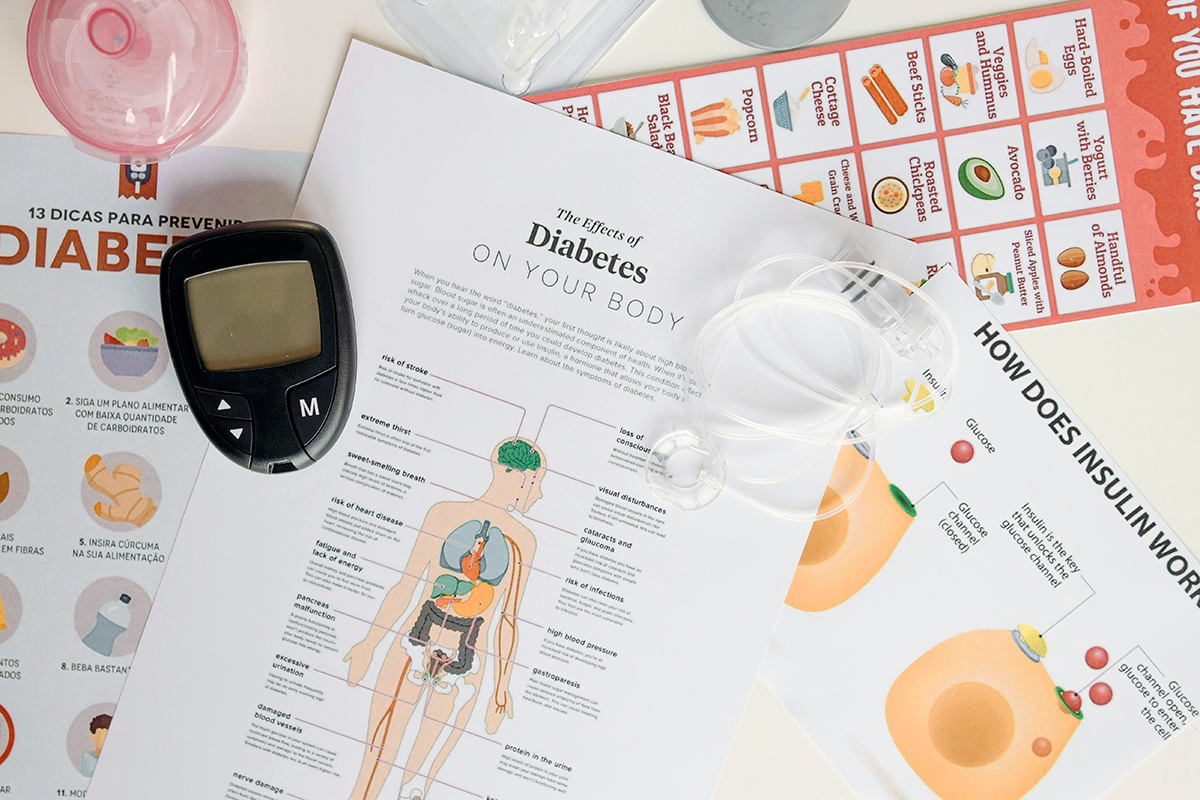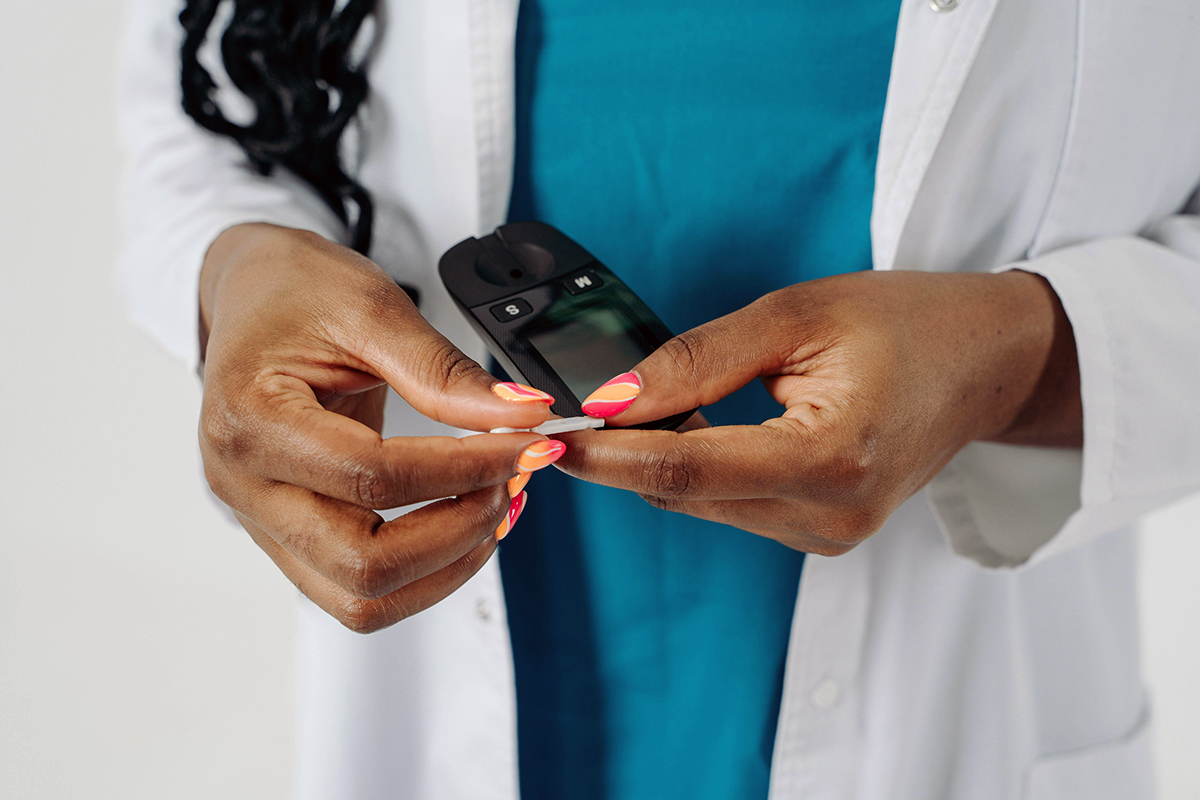Recently a friend told me she was concerned about her blood sugar. A dozen or so years ago, she was diagnosed with gestational diabetes during her second pregnancy. Immediately after pregnancy, her blood sugar was fine. But after a regular visit with her primary care doctor in the past few weeks, she received a cryptic message from her doctor about cutting back on carbohydrates in her diet.
She was surprised by her doctor’s recommendation — she told me that she doesn’t eat much in the way of carbs — and was worried and frustrated with the lack of guidance she was receiving.

Gestational diabetes can be a challenging diagnosis to receive. It comes with new tasks like checking your blood sugar and a nutrition plan that doesn’t leave a lot of wiggle room. The good news about gestational diabetes, though, is that because it is caused by hormones that are made by the placenta, the minute the placenta is delivered, high blood sugars drop back down to normal.
However, while it is true that the immediate blood sugar issues do typically resolve with delivery, women who are diagnosed with gestational diabetes have an increased risk for Type 2 diabetes later in life. How, then, can women be proactive in trying to avoid getting diabetes later?
How are gestational diabetes and Type 2 diabetes related?
Gestational diabetes does not cause Type 2 diabetes. Rather, when a woman develops blood sugar problems during pregnancy, it provides her, and her doctors, with important information about how her body processes sugar. That in turn provides us with information about her risk of developing Type 2 diabetes later in life (women diagnosed with gestational diabetes also have increased risk for Type 1 diabetes, but that is much less common and not the focus of this piece).
Pregnancy acts as a stress test for your metabolic system — and other body systems too. If your blood sugars rise when your metabolic system is stressed by pregnancy, there is a good chance they will also rise with other stressors such as weight gain or some medications, including steroids.
How likely are you to get Type 2 diabetes if you had gestational diabetes?
Studies have found variation in the rate at which women are diagnosed with Type 2 diabetes after having gestational diabetes. This variation seems to stem from how long the women are followed after pregnancy. The American College of Obstetricians and Gynecologists (ACOG) recommends screening women diagnosed with gestational diabetes for Type 2 diabetes 4 to 12 weeks after delivery. The meta-analysis above, which includes data from 28 studies, found that just 2.6% of women will test positive for diabetes in postpartum testing. After 28 years of follow-up, the researchers found that 70% of women were diagnosed with Type 2 diabetes.
Another meta-analysis, including data from more than 675,000 participants, found that the risk of Type 2 diabetes among women with a history of gestational diabetes is more than seven times that of women without a history of gestational diabetes. It also found that this risk was remarkably consistent across age at the time of pregnancy; ethnicity; and even BMI. That means all the women had a similar risk of developing Type 2 diabetes independent of other risk factors for diabetes, including obesity or being overweight.
How often should you be screened for diabetes?
If you have had gestational diabetes, you should be screened for prediabetes and diabetes regularly. There is not a great deal of evidence regarding when and how to do so. ACOG only recommends screening with an oral glucose tolerance test — that’s the test with the sickly sweet drink — once in the first 12 weeks postpartum.
The American Diabetes Association also recommends a glucose tolerance test in the first 12 weeks postpartum. In addition, it recommends lifelong testing every one to three years, though it doesn’t specify how to test.
In practice, many women do not complete a postpartum oral glucose tolerance test. Estimates of screening rates vary from 34% to just over 70%. After the postpartum period, your primary care doctor would be most likely to screen you for diabetes. Your doctor may not ask if you have a history of gestational diabetes, but it is critical to tell them about it so that they can continue to monitor for prediabetes and diabetes. When screening is indicated, most will use a test called a hemoglobin A1C because it requires just one blood draw and does not need to be drawn fasting.
The goal of screening is to identify rising blood sugars before a woman meets the criteria for diagnosing diabetes. If we identify changes in blood sugar early, there are evidence-based interventions that delay or prevent the progression to Type 2 diabetes.
How can you reduce your risk of developing Type 2 diabetes?
Two interventions have been shown to be highly effective at preventing Type 2 diabetes among women with a history of gestational diabetes: intensive lifestyle change (that is, following a diet and exercise regimen designed to reduce blood sugar) and the medication metformin.
In the study linked above, women with and without a history of gestational diabetes and with signs of impaired blood sugar metabolism were randomized to receive a placebo, intensive lifestyle counseling, or metformin. The researchers found that they needed to treat only five or six women with either intensive lifestyle change or metformin for three years to prevent one case of Type 2 diabetes.
The metric number-needed-to-treat (NNT) is frequently used in clinical trials to give a sense of the efficacy of the intervention. An NNT of 5 is unheard of. Even in clinical trials considered to be a smashing success, NNT might be 50 — the NNT for statins was around 48, and cardiologists are ready to add them to the water supply.
Sadly, the trial did not include a group that received both intensive lifestyle change and metformin. I for one would have loved to see how well those women did.
When should you intervene?
The sooner you intervene, the better. Maintaining a healthy diet low in simple carbohydrates and high in lean protein and green leafy vegetables is always a good idea, as is getting in 150 minutes of cardiovascular exercise and two 30-minute strength training sessions each week.
In the trial of metformin, the participants had signs of impaired blood sugar metabolism, such as a high fasting blood sugar, high insulin levels, or prediabetes. It would be reasonable to consider starting metformin when a woman’s blood work shows signs of poor blood sugar metabolism like these. But you have to be on the lookout for them and share your pregnancy history with your doctor. These tests are not always part of routine annual testing.
The bottom line
- Women with a history of gestational diabetes are at high risk of developing Type 2 diabetes. Up to 70% will be diagnosed with Type 2 diabetes in the 30 years following pregnancy.
- Regularly getting blood work to look for changes in blood sugar metabolism is key to identifying changes and intervening effectively.
- Both intensive lifestyle change and metformin are highly effective at delaying or even preventing Type 2 diabetes in women with a history of gestational diabetes.

















Log in